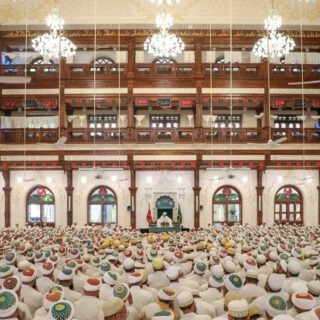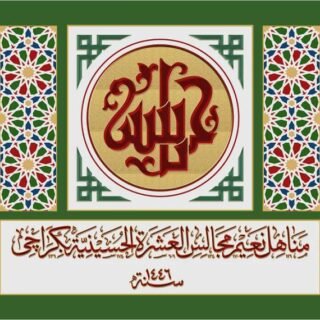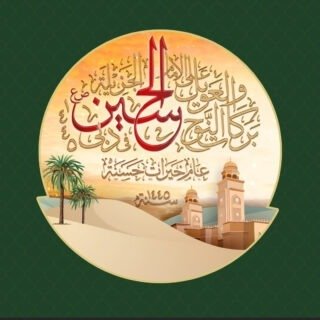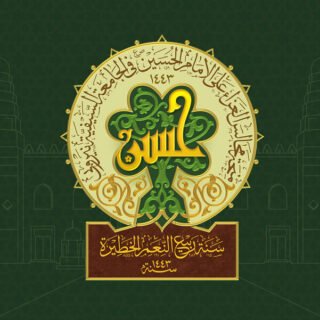13th ShehrAllah 1441 H
Surah al-Asr: In the first ayah of this surah, Allah Taala swears by Asr, the late afternoon. The waaw (و ) prior to al-asr indicates an affirmation that ‘I swear by time (late afternoon) that man is at a loss’. Throughout the Quran, Allah has sworn by different times of the day: morning (والفحجر), midday (والضحى) and the night (والليل). These affirmations indicate the importance of both the subject and object of the affirmation. The times of the day are when one prays namaz and the various other objects by which Allah swears by are the marvels of creation like stars. 15 surah in the Quran commence with such affirmations.
The word insan (man/mankind) is mentioned in 65 places in the Quran. In the majority of instances he is portrayed negatively.
3 aayah is the smallest number of aayah in a surah. The name of the surah and its three ayah reminds us of the time of asr on the Day of Ashura in which Imam Husain AS attained shahadat after facing three days of thirst and hunger. This surah has 71 words, and counting the surah itself totals 72.
There are 22 ayat in the Quran without nuqta (diacritic).
A question was put forward to students of Aljamea-tus-Saifiyah asking them to explain how Faid al-Mawaid al-Burhaniyya incorporates the barakat of all 7 daaim of Islam.
Rasul Allah’s SA revered forefathers used to feed all those who came towards BaitAllah. Maulana Hashim’s AS hashmo is renowned. Likewise, Maulana Ali AS and Imam Ali Zainulabedin AS provided food to hundreds. Amongst Duat Mutlaqeen AS, Syedna Ismail Badruddin RA commenced the safra rasam to provide lodging and boarding to all those who journeyed to the presence of Duat Mutlaqeen AS in the pursuit of knowledge.
Walayat: the prerequisite for the acceptance of all deeds. In Sura al-Insan, Allah states ‘they feed others food out of love’. Likewise, Syedna Mufaddal Saifuddin TUS has repeatedly directed Mumineen to make mohabbat ni roti, a deed that has brought families closer to each other and subsequently the entire community. Faid al-Mawaid al-Burhaniyya contains the name of Syedna Mohammed Burhanuddin RA, the very mention of which brings about renewed enthusiasm to all those involved in this noble act.
Taharat: water is the source of taharat for our bodies and clothes. Through Faid al-Mawaid al-Burhaniyya and consuming halal foods, we attain the taharat of our thoughts. During Ashara Mubaraka in Dar es Salaam (1438 H), Maula TUS mentioned that Mumineen carefully check the ingredients before purchasing any food items for if even one drop of haram enters the body it can cause great harm. The food we consume is turned into our blood which in turn is turned into the tears we shed upon Imam Husain AS. If our food is not halal, then the act of noha and aweel, essential to salvation, becomes much more difficult.
Namaz: During Zikra waaz this year, Maulana TUS mentioned that Imam Ali Zainulabedin AS carried out two particular deeds. One, he would pray 1000 rakats every day submitting himself before the Almighty, and the second, once all members of his family had retired for the night, he would personally deliver food to the needy of Madina, an act that reveals his humility. In the functioning of Faid al-Mawaid al-Burhaniyya, Mumineen carry out various khidmats: procurement of raw materials, delivering the thaalis, monitoring the cooking process and ensuring the maintenance of kitchen hygiene and accounting. Regardless of the task one carries out, each Mumin humbly fulfills his responsibility and in doing so feels a great satisfaction that he is contributing to the best of his ability to an initiative which Maula TUS holds so dear.
Zakat: The Quran states, that the love of wealth is ingrained in man. Mumineen all over the world contribute to Faid al-Mawaid al-Burhaniyya and reap the divine rewards of feeding their brethren. Despite the current circumstances, Faid al-Mawaid al-Burhaniyya khidmatguzars ensured that food items were delivered to the homes of all Mumineen. No financial impediments prevented them from carrying out their tasks, and in turn were blessed with the dua mubarak of Syedna al-Dai al-Ajal TUS.
Rozah: Rozahs are such a venerated deed that Allah states, ‘rozahs are for me and I will reward those who observe them’. Rasul Allah SA states, ‘observe rozah; remain healthy’. Just as one secures his health by observing rozah, he does the same by taking the barakat of Faid al-Mawaid al-Burhaniyya because nutrition and hygiene are of utmost priority in its preparation. The dishes prepared are those which Awliya Allah AS have encouraged us to consume, for example the consumption of meat betters our character, honey and kalonji cures all illness save death etc.
Haj: One blessing of Haj is the forgiveness of all sins. Likewise, through Faid al-Mawaid al-Burhaniyya our sins are forgiven. First, for the one who feeds his brethren. Seven prisoners were brought before Rasul Allah SA who ordered for action to be taken upon them. At that moment Jibrael descended and asked Rasul Allah SA to spare one of them for he has a habit of feeding many others. Thus by the virtue of this act, his sins were forgiven. Secondly, for the one who partakes in the meal. It is stated that malaikat seek forgiveness for those who consume from the mawaid of Aale Mohammed AS.
Jihad: the greatest battle is the one with our soul, which prefers the comforts of lives, discourages us from spending our wealth, and expending ourselves in causes that benefit others. In the Faid al-Mawaid al-Burhaniyya initiative we see Mumineen from all backgrounds coming together, each discharging his task and collectively ensuring that no Mumin anywhere in the world ever sleeps hungry.
By simply even partaking from the thali of Faid al-Mawaid al-Burhaniyya we reaffirm our allegiance to the 7 daaim of Islam.
The word niyaz has become synonymous with Imam Husain AS. Today thousands of Mumineen feed their brethren in the name of Imam Husain AS, and by doing so affirm the fact that it is because of Imam Husain’s AS shahadat that Islam and its daaim exist today.








